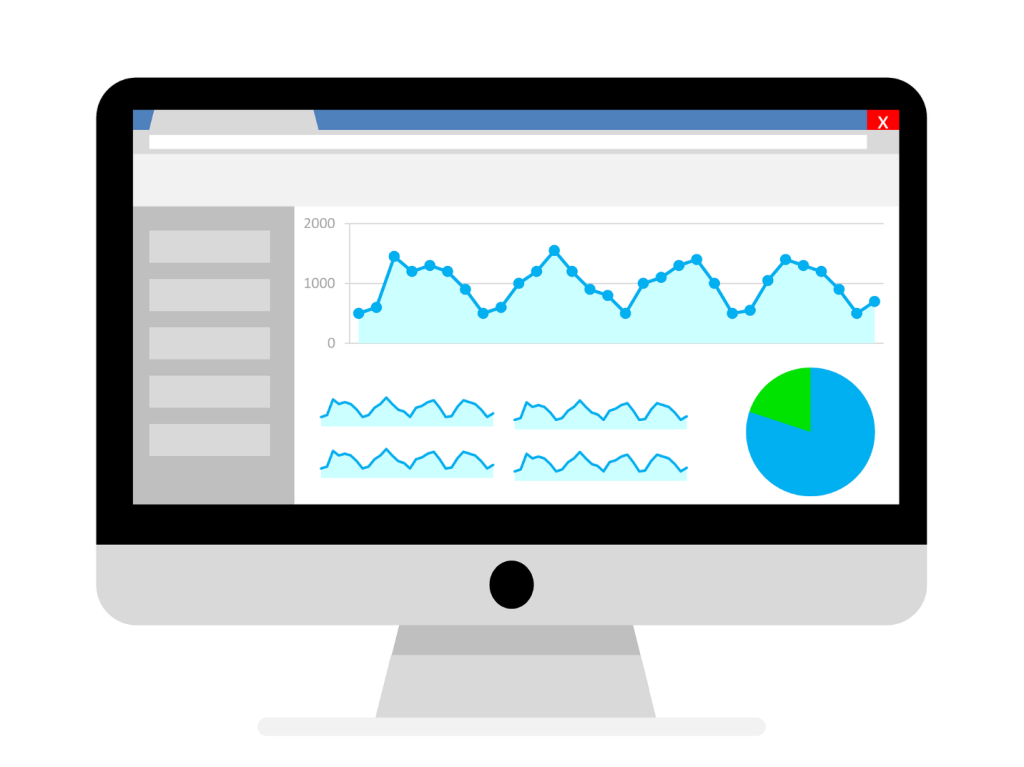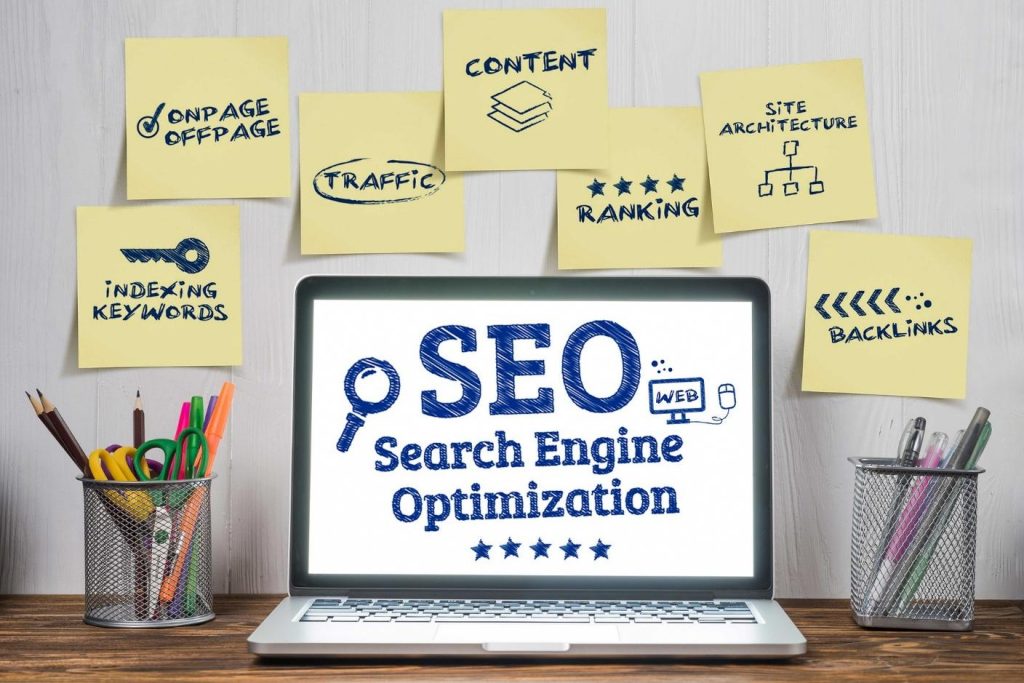7 Ways to Evaluate the Effectiveness of Content Marketing Strategy
In today’s digital world, having a content marketing strategy in place is critical. It allows businesses to develop relationships, generate leads, and, most crucially, boost revenue.
But how many businesses are putting this strategy into action? And how do they evaluate their work?
Research has shown that 84% of businesses have a content marketing strategy, but only 11% evaluate their content marketing strategy as an excellent one.
A content marketing strategy isn’t an option; it’s a must!
It serves as a template for your business’s sales approach. Also, they spell out every detail of what’s to come in the company, but they may be susceptible to change or evaluation according to market changes.
Recently, it has become evident that the face of content marketing is changing at a faster rate than ever before. Besides, consumer behaviors have been radically impacted worldwide due to the lockdown period, and businesses of all kinds are responding.
However, the internet arena is now a hotbed of marketing competition. As a result, you understand existing industry content marketing strategy, and identifying areas where you can potentially leverage and enhance is critical.
Further, your content marketing strategy success is contingent on the correct efforts made in the right direction. Also, discovering how to determine whether your marketing strategy produces the most significant potential results will save you time and money while ensuring your company’s success.
In this article, we’ll examine seven fundamental strategies to assess the efficiency of your content marketing strategy. These tips will help you determine if your plan delivers the outcome, you want and expect.
Let’s proceed!
Tips to Check the Effectiveness of My Content Strategy
1. Conversion Rate

The ultimate goal of a content marketing strategy is the conversion rate of visitors to potential clients. Conversion rate is a fundamental approach for evaluating the effectiveness of your content. It calculates the proportion of users who have viewed the content and taken action.
Suppose your content is enticing lots of people through social media and organic search. In that case, you should analyze the volume and frequency of conversions linked directly to your content marketing efforts to examine the efficiency of your content marketing.
It’s critical to keep track of conversions for factors like email subscriptions, CTAs, and qualified lead conversions, among other things. It also entails tracking the percentage of users who fill out your contact forms. In addition, you can assess email list sign-ups (blogs, businesses), free trial sign-ups (SAAS – online tools, memberships, etc.), and free trial sign-ups (SAAS – online tools, memberships, etc.).
However, a rise in sales, on the other hand, will establish how well your content is performing.
2. Site Traffic
Online content can’t exist without traffic. Nobody will read your blog post if no one visits your website. Thus, they make your content useless.
However, the amount of traffic to your website is a good indicator of how well your content is performing. Massive traffic is terrific news if your bounce rate isn’t too high.

Your site’s bounce rate is the percentage of visitors who leave after reading only one page. A high bounce rate indicates that your homepage is uninteresting or off-putting and that your content isn’t engaging enough to keep visitors on your site.
Furthermore, traffic is one metric that is measured if you want to get back to the basics. In some ways, it’s a gauge of your brand’s power.
You can measure your website traffic with popular tools like Google Analytics, Matomo, Open Analytics, Clicky, and more. These tools compare traffic results to the previous to remove seasonality as a factor.
3. Social Media Engagement

Examining how well your content performs on social media is another good technique to gauge its engagement.
While you may track a variety of data, the most crucial thing is to know the number of your content shared on social media. In addition, a share indicates that your content is valuable to others. Therefore, if your content is useful and practical, people will typically share the link on social media platforms.
Also, shares on social media might help you figure out what kind of content your audience responds to best. Besides, consider keeping track of total social shares and claims per channel, the number of shares each piece of content receives, and the amount of website traffic generated.
Nevertheless, the number of hits on your material might help you track the quantity of traffic you’re getting from social media networks. More social platform clicks indicate that more people are sharing and interacting with your content.
Furthermore, tracking the social media engagement of your content is an excellent approach to measure and monitor your content marketing success. As a result, it is essential to make sure your brand’s content generates awareness.
4. SEO Performance
Although not all of your traffic will come from social media, it’s critical that you also get a lot of visitors through search. In Google Analytics, you can track the percentage of your site visits that originate from search, but this doesn’t tell you much about how well your site performs in search engines. Instead, you’ll need to analyze your SEO success.

The method of improving website traffic by having your web pages rank better in search engine results is known as search engine optimization (SEO), and it is highly significant. Besides, quality content is the foundation for higher SEO.
However, content optimization allows your site to appear organically in search engine result pages (SERPs) and drive organic interaction.
Further, it is essential to analyze your SEO success. Thus, to measure your SEO performance, it is necessary to check that:
● Your content is well-positioned for the keywords you’ve chosen.
● Your content pops up in search results for related terms.
● You have a high domain authority (this happens when high authority sites link to you)
● More inbound links are coming your way.
If all of these factors are true, your content will reach a larger audience, resulting in higher traffic, more leads, and eventually more sales.
● Visibility And Authority
The majority of the tips we’ve discussed so far relate to online websites metrics, whereas visibility and authority can occur both online and offline.
Although authority is not relatively as easy to quantify as the majority of the other metrics, it is still crucial to aim to grow your authority over time.
The high authority will not only help you enhance your SEO, resulting in more search traffic, but it will also help you grow
your brand, increase trust, and boost your conversion rate. Besides, the more authority you have, the more people want to share and link to your content. This tip broadens your reach and boosts the likelihood of generating leads and revenues.
Furthermore, exposure and authority metrics are indicators of content marketing success primarily because they expose your content to a larger audience and drive more traffic to your website. Also, when people recognize your brand and regard you as an authority, you’ll get more business referrals, leads, and sales, which will improve your content marketing ROI.
5. Engagement
It’s not just about attracting people to visit your website; it’s also about keeping them there. If your bounce rate is minimal and people stay on your site for a long time or even return, you know your content is effective, and you’re well on your way to generating leads and revenue from it.
Also, the amount of traffic your content receives can be a better indicator of your ability to convince people to click your links than your content’s quality. The idea is to keep them on your site for as long as possible so that they may read more of your material (unless, of course, you want to funnel them to a sales page as quickly as possible.)
However, examine your engagement stats to discover if your website content draws quality leads. Likewise, measuring how people engage with your material on your website is an intelligent approach to ensure that you’re attracting traffic interested in what you have to offer.
6. Click-Through Rate (CTR)
The CTR reflects your campaign’s relevance to a specific lead segment or category. Moreover, it is measured as the percentage of users that clicked on your lead-generation channel’s links vs. the total number of persons who may have.
Furthermore, a low CTR implies that you’re selling the wrong type of content to the bad (or right) group, whereas a high CTR indicates that your audience responds positively to your content.
It is essential to use Google Analytics Queries, your email service provider, and analytics tools to track your CTR across SEO, social platforms, and email marketing.
These tools are provided by individual social networks or social-media measurement platforms. Also, you can use this information to strengthen your campaign and maximize the outcomes that will demonstrate its success.
Final Thoughts

It may take some time for your content marketing plan to develop. However, monitoring these data will make the effectiveness of your content marketing much clearer and the prognosis for future growth much easier to predict.
As a result, it’s never too late to start using content measurement approaches to determine what works best for your company’s content marketing.
Author Bio: Olagboye Success

OLAGBOYE SUCCESS was born in the great city of Ibadan, the first son of a business expert. In a search to discover what he could do, he stumbled into the pathway of writing. He is currently the content strategist at Eden Content Hub. He is also a regular contributor at Brand Network. Asides from writing, Success loves to see young people explore their potential.Get in touch with Success via:
edencontenthub.com
How to Use AI-Powered SEO Tools for WordPress eCommerce
SEO is a critical factor in the success of any e-commerce WordPress store. As competition…
0 Comments11 Minutes
Why Short-Form Videos Are the Future of Content Marketing
Your Instagram customers spend over 50% of their time watching short-form videos and reels. Rather…
0 Comments12 Minutes
The Role of Digital Marketing in Business Growth
Online marketing touches every aspect of a business, whether it is initiating the idea or for an…
0 Comments3 Minutes
AI Meets Authenticity: Balancing Automation and Human Touch in Content Marketing
Is your brand starting to sound like a robot? In a world where algorithms write faster than any…
0 Comments8 Minutes
Essential Tools for Enhancing Web Design and UX Hosting
Have you ever visited a website that felt slow, clunky, or confusing? A website that is poorly…
0 Comments11 Minutes
How a Mini Cart Transformed My Store’s Shopping Experience
Okay, real talk—running an online store is hard. You think you’ve got everything figured out, you…
0 Comments9 Minutes
Balancing Your Security Initiatives With Industry Compliance Requirements
Managing a business today comes with a number of daily battles that need to be fought. Resources…
0 Comments11 Minutes
Best plugins to enhance the customer shopping experience
Customer experience is a key part of every online store. A good experience helps customers find…
0 Comments7 Minutes
1 Comment
Comments are closed.









Content marketing is the secret to any business growth.